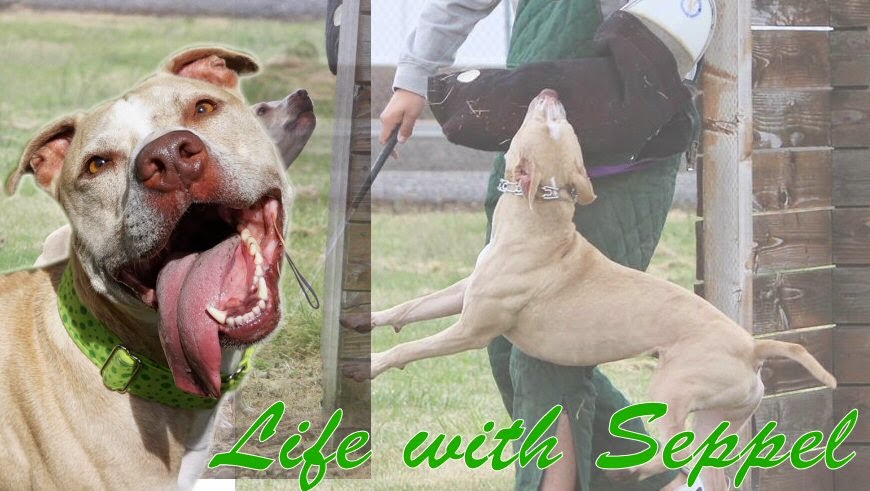I have written about it before but my dog LiLo has hip dysplasia. I discovered it when she was around 3-4 years old when I took her for a long camping trip. She had always walked kind of funny but when we came home from our trip she was very sore. X-rays revealed that she had started to get arthritis in her hips.
I can't say for sure but I believe I started giving her adequan injections when she was around 5 years old [possibly sooner]. Up until now I have maintained her hips with monthly adequan injections, fish oil, and the occasional dose of an NSAID. The adequan has been a miracle, I feel that without it she would not have the range of motion she still has and that she would have been worse off earlier on.
Over the last few weeks I've noticed LiLo has become increasingly sore after activity. LiLo loves to play ball and flirt pole, I've noticed the last few times after playing ball she is so sore afterwards that she can hardly walk. This is something new, she has always been kind of sore after a hard workout, but not to this extent. I took her swimming a few weeks ago and even that caused her to be very sore, she was even limping on the front end.
I started giving her Metacam daily a few weeks ago, as well as tramadol.
I am a firm believer that our animals when painful should NOT go without pain medication. We know so much more now about pain than we did years ago and there is no reason not to treat your pet's pain.
I had an old timer tell me that they withheld pain medication from their dog because "if he feels it, he will rest and not over do it." I'm just going to say it, that is bullshit. Who has the opposable thumb? If your dog is hurt and needs to be quiet, instead of allowing them to suffer, you give them pain medication and you crate as needed, sedate as needed, and leash walk as needed. It's called management.
Anyway, I digress, LiLo will be 11yrs old this year and I intend to make the time I have with her as comfortable as possible. I have always been leery about giving NSAIDs daily due to their toxicity to the liver and kidneys. I feel like I have been extremely lucky that we did not have to go that route for so long and I am willing to do it now because she really needs it. The truth is, for me it is all about quality of time, not quantity. I would rather LiLo have a few great years than have many miserable years.
I am hoping that by managing LiLo's pain properly she can still continue to lead a fairly active lifestyle. I intend on taking her swimming a few times a month for something low impact and will still allow her to play ball or flirt pole but will probably lower the duration for those activities so that she can participate, but won't be so sore she cannot walk. We'll see how things go.
There are different types of NSAIDs, the most commonly used ones at the practice I work at are Vetprofen/Carprofen/Rimadyl and Metacam. I talked to my boss and we send Vetprofen and Metacam most often because they seem to produce the least amount of side effects and cover a more broad spectrum as far as pain. It's a bit more technical than that, but that's the basic reasoning. There is previcox and deramaxx but those drugs tend to be harder on the guts. The truth is, all NSAIDs have side effects and what works for one dog may not work for another.
LiLo and Seppel both have a rough time with Vetprofen, when used daily they vomit and I think Seppel actually started to get an ulcer. I have used previcox on both of them and when I inquired about using an NSAID daily, metacam was recommended. LiLo has been on the metacam almost daily for the last few weeks and it doesn't bother her tummy at all. I give it to her almost everyday, especially if I am going to throw the ball for her or let her play flirt pole. So far when she has been active the medication has worked and has prevented her from being nearly as sore as she would be without it. Without medication she is miserable just a few hours after activity.
I think it is really important in aging or orthopedically compromised dogs to address their pain and treat it adequately. I know as she ages LiLo will slow down, and that is fine, but I also know managing her pain properly will help keep her healthy and as active as she can be, even for an older dog.

